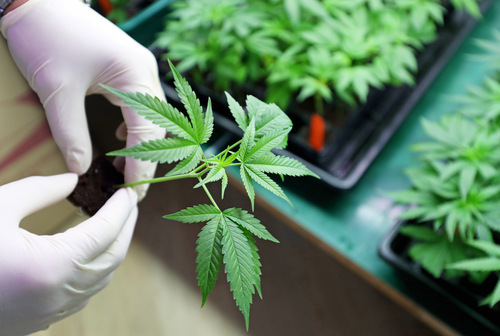Cannabinoids Ease Motor Symptoms in Mouse Model of Parkinson’s, Early Results Show
Written by |

Cannabinoid-based formulations in development at GB Sciences were able to ease behavioral symptoms linked to the loss of dopamine producing-nerve cells — a hallmark of Parkinson’s — in a mouse model of the disease, the company said.
GB Sciences will use these early results to support an Investigational New Drug Application it plans to file with the U.S. Food and Drug Administration, requesting to open a clinical trial later this year.
“These positive preclinical results suggest that our cannabinoid-containing complex mixtures may be useful for the treatment of Parkinson’s disease symptomology,” Michael Farley, president and director of GBS Global Biopharma, said in a press release.
Results to date are part of the study’s midterm report, the company said, and the study is continuing.
Parkinson’s is characterized by the degeneration and death of a specific group of nerve cells — called dopaminergic neurons — in the substantia nigra, a brain region that regulates muscle movement and coordination. These cells are responsible for the production of dopamine, a critical brain chemical, or neurotransmitter, that regulates brain cell activity and function.
Cannabinoids are the active chemicals that give the cannabis plant its medical and recreational properties. Numerous studies have looked at the chemicals’ potential to ease motor symptoms in several neurodegenerative conditions, including Parkinson’s.
GB Sciences is creating a pipeline of novel medicines based on the company’s patent-pending formulations of chemicals extracted from the cannabis plant.
Results of the preclinical study, led by Lee Ellis of Canada’s National Research Council (NRC), showed that several of GB’s cannabinoid formulations eased behavioral symptoms in a mouse model of Parkinson’s. One formulation completely relieved the symptoms, without signs of significant side effects.
“Several of GB Sciences’ mixtures were effective,” said Andrea Small-Howard, chief science officer and director of both GB Sciences and GBS Global Biopharma. “In fact, our most effective mixture was able to ‘rescue’ the PD-like behavioral changes to the point where the treated animal’s behavior was back to baseline. In addition, our PD formulas produced negligible side effects, which is equally important.”
The next and final phase of this ongoing study will look into the mechanisms underlying these formulations and the benefits seen. Researchers suggest that the cannabinoids either protect dopamine-producing neurons from dying, or enhance the production of dopamine by surviving neurons.
All results will be used to support the company’s request to the FDA.





